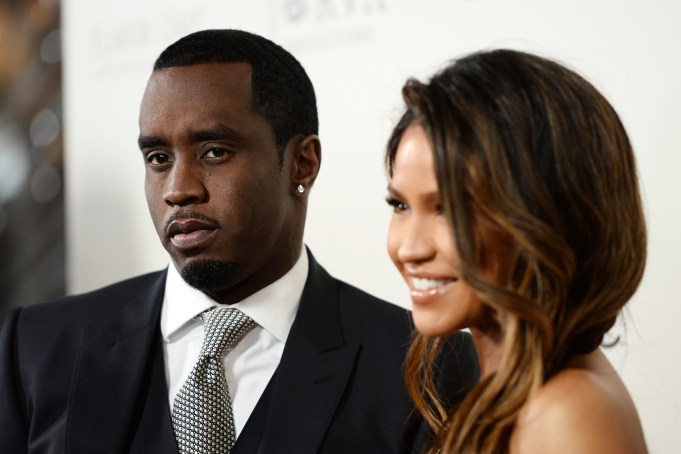Amid the federal trial of Sean “Diddy” Combs, several media entities including ABC News and The New York Times are requesting that the judge allow them to view the “freak-off” videos at the center of Combs’ sex trafficking case.
In a court filing yesterday, legal council representing the Associated Press, Business Insider, Vox Media, Wall Street Journal and others requested that Judge Arun Subramanian permit both the public and the press to view videos of Combs’ “freak-offs,” in which the rap mogul engaged in days-long, drug-fueled sexual experiences. Combs’ ex-girlfriend Casandra “Cassie” Ventura testified against him on Tuesday, alleging that Combs was physically and psychologically abusive toward her during these events, which also involved male escorts.
“While the News organizations appreciate that some trial exhibits in this case may be sexually explicit and sensitive for the alleged victims, the public and the press should be permitted to view and consider this evidence (which lies at the heart of the Government’s case), consistent with the first Amendment right of access to criminal trials,” reads the filing
The news outlets are not requesting copies of the videos themselves; rather, they want the ability to see them as they’re presented to the jury. The Combs trial is not televised, and members of the press and public are required to surrender all electronic devices before entering the courtroom. If the court finds that privacy interests would preclude news outlets at large from viewing them, then the outlets are instead asking for three pool reporters to watch and listen to the exhibits as they’re shown.
Though the council acknowledges that the videos are sensitive and that those shown in them have privacy interests, they argue that “given the central role that the videos may play in the determination of Mr. Combs’ guilt or innocence in this case, those privacy interests cannot overcome the public’s powerful First Amendment interest in monitoring the judicial process.”
A legal representative for Ventura, one of the key witnesses and victims in the case, swiftly responded with an opposition to the motion. Attorney Douglas H. Wigdor filed to deny the request last night, writing that the outlets “did not cite any case, and nor are we aware of any authority, granting this unprecedented request in a sex trafficking case to unseal videos depicting coercive sex acts.”
In his opposition, Wigdor cited that public right of access is not absolute, and that showing the videos would be a violation of Ventura’s privacy. He also argued that publicizing the videos would have a “chilling effect” on other victims, and that they have “minimal value to the public’s understanding of the trial.”
In court on Tuesday, both federal prosecutors and Combs’ defense attorneys argued in favor of sealing the “sexually explicit” evidence, which show nudity of alleged victims. The judge expressed First Amendment concerns and wondered if sealing the evidence could send a “signal” to the jury.
Combs’ attorney Marc Agnifilo characterized the “freak-off” videos as “adult pornography” and said the defense is not looking to seal anything that isn’t “sexually explicit,” calling it a “privacy issue.”
“What would The Wall Street Journal and The New York Times do with this information if they had it?” he asked in court.
Attorney Robert D. Balin argued on behalf of the news in front of the judge, saying he “strongly objects” to the sealing of evidence because witness “testimony is not a substitute for those videos.” The best way to determine whether the sex acts portrayed in the videos are consensual versus coerced is to watch them, Balin said, assuring the judge that it is not the intention of the press is to be “salacious.” Balin argued that it’s important for the media — which, in an untelevised, high-profile trial, is the public’s only window into the court proceedings — to “see justice being done.”
Ventura began her testimony against Combs, who is accused of sex trafficking and racketeering, on Tuesday and was asked to describe the “freak-offs” in graphic detail. Evidence including text exchanges and photos not depicting sexual activity was shown to the jury and members of the public and press. Ventura will continue her testimony throughout the week.







